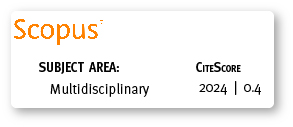Desempeño numérico de los niños de primer año de básica
DOI:
https://doi.org/10.18537/mskn.07.01.01Palabras clave:
desempeño numérico, destrezas relacionales piagetianas, destrezas de conteo, evaluación matemática temprana, educación infantilResumen
Las destrezas numéricas que poseen los niños en el kindergarten (primer año de básica en Ecuador) predicen altamente su desempeño escolar posterior, lo cual sugiere que evaluar estas destrezas a temprana edad es fundamental con miras a implementar programas de refuerzo que los ayude a mejorar su rendimiento académico a lo largo de la escolaridad. El objetivo del presente estudio fue examinar las destrezas numéricas de los niños de primer año de básica por medio del Test de Evaluación Matemática Temprana. Los participantes fueron 100 niños de primer año de básica de cuatro escuelas particulares de Cuenca. Los resultados indicaron que los niños presentan un nivel bueno de desempeño numérico y que el dominio de habilidades para establecer relaciones lógicas es superior al dominio de habilidades para contar. No se observaron diferencias de género en este desempeño. Adicionalmente, se encontró que existen diferencias significativas entre escuelas en el desarrollo de las destrezas numéricas de sus estudiantes. Las implicaciones teóricas y prácticas de este estudio son discutidas.
Descargas
Métricas
Citas
Anders, Y., C. Grosse, H.-G. Roßbach, S. Ebert, S. Weinert, 2012. Preschool and primary school influences on the development of children´s early numeracy skills between the ages of 3 and 7 years in Germany. School Effectiveness and School Improvement, 24, 195-211.
Aragón, E.L., C.I. Delgado, M. Aguilar, A. Araújo, J.I. Navarro, 2013. Estudio de la influencia de la inteligencia y el género en la evaluación matemática temprana. European Journal of Education and Psychology, 6(1), 5-18.
Aubrey, C., 1993. An investigation of the mathematical knowledge and competencies which children bring into school. British Educational Research Journal, 19(1), 27-41.
Aubrey, C., S. Dahl, R. Godfrey, 2006. Early mathematics development and later achievement: Further evidence. Mathematics Education Research Journal, 18, 27-46.
Aunio, P., M. Niemivirta, 2010. Predicting children's mathematical performance in grade one by early numeracy. Learning and individual differences, 20, 427-435.
Bojorque, G., 2006. Children’s early mathematical skills: Characteristics of early mathematics instruction in Ecuador. Master Thesis. KU Leuven, Leuven, Belgium.
Bryant, P., T. Nunes, 2002. Children's understanding of mathematics. In: Goswami, U. (Ed.), Blackwell handbook of childhood cognitive development (pp. 412-439). Malden, the Netherlands: Blackwell.
Cerda, G., C. Pérez, C. Moreno, K. Núñez, E. Quezada, J. Rebolledo, S. Sáez, 2012. Adaptación de la versión española del Test de Evaluación Matemática Temprana de Utrecht en Chile. Estudios Pedagógicos, 38, 235-253.
Clements, D.H., J. Sarama, 2011. Tools for Early Assessment in Math (TEAM). Teacher´s Guide. Mc Graw Hill Education Series.
Chu, F., K. Geary, D. vanMarle, 2013. Quantitative deficits of preschool children at risk for mathematical learning disability. Frontiers in Psychology, 195, 1-10.
Duncan, G.J., C.J. Dowsett, A. Claessens, K. Magnuson, A.C. Huston, P. Klebanov, L.S. Pagani, L. Feinstein, M. Engel, J. Brooks-Gunn, H. Sexton, K. Duckworth, C. Japel, 2007. School readiness and later achievement. Developmental Psychology, 43, 1428-1446.
Fayol, M., 2005. ¿Cuentan mejor los niños asiáticos? Mente y Cerebro, 15, 19-23.
Gelman, R., C.R. Gallistel, 1978. The child´s understanding of number. Cambridge, MA: Harvard University Press.
Ginsburg H.P., A.J. Baroody, 2003. Test of Early Mathematics Ability (3rd ed.). Austin, TX: PRO-ED.
Ginsburg, H.P., J.S. Lee, J.S. Boyd, 2008. Mathematics education for young children: What it is and how to promote it. Social Policy. Society for Research in Child Development, 22, 3-24.
Grégoire, J., M-P. Nöel, C. Van Nieuwenhoven, 2015. TEDI-MATH, Test para el diagnóstico de las competencias básicas en matemáticas (2ª ed). (Manuel J. Sueiro & Jaime Pereña, adaptadores). Madrid: TEA Ediciones.
Instituto Nacional de Evaluación Educativa (INEVAL), 2014. Ser Estudiante 2013. Primeros resultados nacionales. Quito: s.e.
Jordan, N.C., D. Kaplan, C. Ramineni, M.N. Locuniak, 2009. Early math matters: Kindergarten number competence and later mathematics outcomes. Developmental Psychology, 45, 850-867.
Kilpatrick, J., J. Swafford, B. Findell, 2001. Adding it up. Helping children learn mathematics. Washington, D.C.: National Academy Press.
Klein, A., P. Starkey, 2004. Fostering preschool children´s mathematical development. Findings from the Berkeley math readiness project In: Clements, D.H., J. Sarama, A.-M. DiBiase (Eds.), Engaging young children in mathematics: Standards for early childhood mathematics education (pp. 343–360). Mahwah, NJ: Lawrence Erlbaum Associates.
Krajewski, K., W. Schneider, 2009. Exploring the impact of phonological awareness, visual-spatial working memory, and preschool quantity-number competencies on mathematics achievement in elementary school: Findings from a 3-year longitudinal study. Journal of Experimental Child Psychology, 103, 516-531.
Lago, M.O., P. Rodríguez, A. Escudero, C. Dopico, 2012. ¿Hay algo más que contar sobre las habilidades numéricas de los bebés y los niños? Educación Matemática en la Infancia, 1(1), 38-53.
Lindberg, S.M., J.S. Hyde, J.L. Petersen, M.C. Linn, 2010. New trends in gender and mathematics performance: A Meta-Analysis. Psychological Bulletin, 136, 1123-1135.
Ministerio de Educación, 2010. Actualización y fortalecimiento curricular de la educación general básica: Primer año. Quito, Ecuador.
Ministerio de Educación, 2013. Archivo maestro de instituciones educativas AMIE. Reporte de registros educativos 2013-2014. Quito, Ecuador.
National Research Council, 2009. Mathematics Learning in Early Childhood: Paths Toward Excellence and Equity. Washington, DC: Center for Education, Division of Behavioral and Social Sciences and Education.
OCDE, 2014. Resultados de PISA 2012 en Foco. Lo que los alumnos saben a los 15 años de edad y lo que pueden hacer con lo que saben. Programa para la evaluación internacional de alumnos PISA. Disponible en: http://www.oecd.org/pisa/keyfindings/PISA2012_Overview_ESP-FINAL.pdf.
Oyarzún, C., 2003. Evaluación de las habilidades numéricas en niños de 4 a 7 años: Una propuesta desde la perspectiva del modelo de integración de habilidades. Pensamiento Educativo, 33, 86-104.
Penner, A.M., M. Paret, 2008. Gender differences in mathematics achievement: Exploring the early grades and the extremes. Social Science Research, 37, 239-253.
Programa de Promoción de la Reforma Educativa en América Latina y el Caribe (PREAL), 2006. Calidad con equidad: el desafío de la educación ecuatoriana. Informe de progreso educativo. Quito, Ecuador.
Sarama, J., D.H. Clements, 2009. Early childhood mathematics education research: Learning trajectories for young children. New York: Routledge.
Smith, L., 2002. Reasoning by mathematical instruction in children´s arithmetic. Oxford, UK: Pergamon Press.
Spelke, E.S., 2005. Sex differences in intrinsic aptitude for mathematics and science: A critical review. American Psychologist, 60, 950-958.
Starkey, P., A. Klein, A. Wakeley, 2004. Enhancing young children’s mathematical knowledge through a pre-kindergarten mathematics intervention. Early Childhood Research Quarterly, 19, 99-120.
UNESCO, 2008. Los aprendizajes de los estudiantes de América Latina y el Caribe. El laboratorio Latinoamericano de evaluación de la calidad de la educación (LLECE). Santiago, Chile.
van de Rijt, B.A.M., J.E.H. van Luit, A.H. Pennings, 1999. The construction of the Utrecht early mathematical competence scales. Educational and Psychological Measurement, 59, 289-309.
van Luit, J.E.H., B.A.M. van de Rijt, J.L. Navarro, M. Aguilar, C. Alcalde, E. Marchena, M.G. Sedeño, 2011. Test de evaluación matemática temprana. Madrid: EOS.
Verschaffel, L., E. De Corte, 1996. Number and arithmetic. In: Bishop, A.J. et al. (Eds.), International Handbook of Mathematics Education, 99-137.
Wright, R.J., 1994. A study of the numerical development of 5-year-olds and 6-year-olds. Educational Studies in Mathematics, 26, 25-44.
Descargas
Publicado
Cómo citar
Número
Sección
Licencia
Copyright © Autors. Creative Commons Attribution 4.0 License para cualquier artículo enviado a partir del 6 de junio de 2017. Para los manuscritos presentados anteriormente, se utilizó la licencia CC BY 3.0.
![]()
Usted es libre de:
 |
Compartir — compartir y redistribuir el material publicado en cualquier medio o formato. |
 |
Adaptar — combinar, transformar y construir sobre el material para cualquier propósito, incluso comercialmente. |
Bajo las siguientes condiciones:
 |
Atribución — Debe otorgar el crédito correspondiente, proporcionar un enlace a la licencia e indicar si se realizaron cambios. Puede hacerlo de cualquier manera razonable, pero de ninguna manera que sugiera que el licenciador lo respalda a usted o a su uso. |
| Sin restricciones adicionales: no puede aplicar términos legales o medidas tecnológicas que restrinjan legalmente a otros a hacer cualquier cosa que permita la licencia. |
Mayor información sobre este acuerdo de autoría y licencia, transferencia de derechos o solicitudes de reproducción, pueden ser consultados en este enlace.









